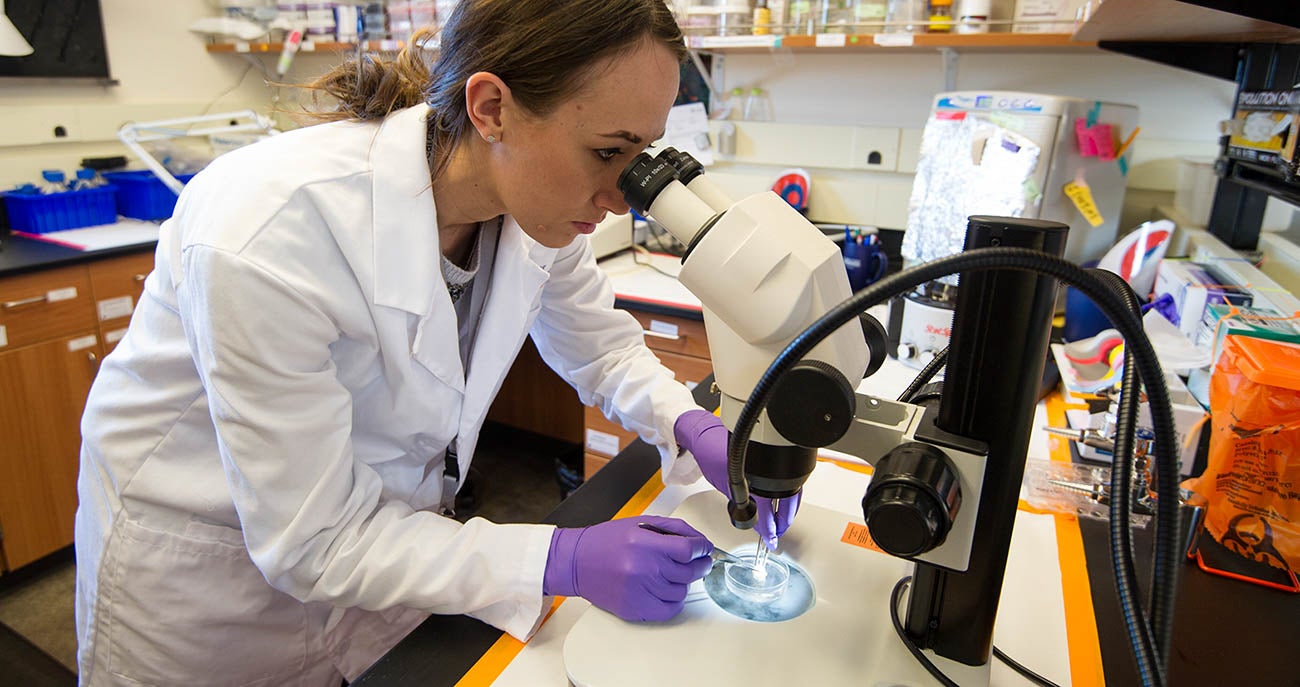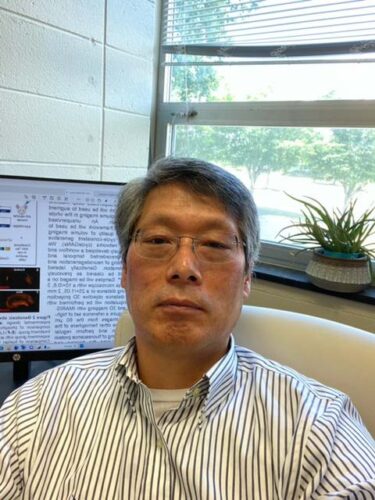
Of the one trillion cells in a human brain, there are almost 100 billion neurons. If we lined up our neurons, the cells would wrap around the earth four times. Neurons, or nerve cells, are essential to everything we do. They send messages throughout our bodies, allowing us to coordinate muscles on conscious and unconscious levels to breathe, talk, walk, eat and think.
Neuroscience is the study of the nervous system – how it’s structured, how it functions, and how it develops and degenerates under health and under diseased conditions. It is a rapidly growing field of study, influencing numerous industries.
Boise State is launching the first undergraduate degree in neuroscience in Idaho. Boise State’s Board of Trustees approved the program in June.
Students who earn a Bachelor of Science in Neuroscience are highly sought after in medicine, rehabilitation, biomedical research, technology, human resources, marketing, sales, education and beyond. Students majoring in neuroscience can choose from one of two emphasis areas: cellular/molecular or cognitive/behavioral. A neuroscience minor also will be available to students of all majors.
Interdisciplinary collaboration for teaching and research
“Our uniquely poised program integrates faculty members in a variety of research backgrounds ranging from nervous system and muscle development, neurodegenerative diseases like Alzheimer’s and Parkinson’s disease to bioengineering and therapeutic applications,” said Bob Wood, director of the School of Allied Health Sciences and associate dean of research for the College of Health Sciences.
Each student will participate in at least one year of formal research through Vertically Integrated Projects, independent study and capstone research projects. Wood was one of eight faculty members from biology, psychology, kinesiology and special education who developed the curriculum for the new neuroscience program. They also consulted with Boise State faculty in computer science, language and linguistics, as well as the University of Montana’s undergraduate neuroscience program.
The Boise State neuroscience program is shared by colleges of health sciences, arts and sciences, engineering and education, but will be housed in the School of Allied Health Sciences. This allows the program to utilize existing faculty, courses, labs and classrooms for most of its curriculum. Only six new courses will be created and only two will include lab work.
New program director brings it all together

To oversee and grow the program while maintaining consistent quality, the School of Allied Health Sciences hired Hwan Kim as professor and program director.
“Dr. Kim is a talented researcher and we are excited for him to join the Boise State faculty,” Wood said. “ He developed a similar program at Delaware State and brings with him tremendous leadership experience in successfully managing training programs and guiding students through hands-on research experiences in neuroscience.”
At Delaware State, Kim served as principal investigator for several National Institutes of Health-sponsored projects and programs that investigate how Parkinson’s Disease may form and new treatments for the devastating neurodegenerative disease. Kim received a neuroscience doctorate from the University of California, Los Angeles and completed postdoctoral training experiences at Johns Hopkins University and the Buck Institute for Research on Aging.
“I am excited to come to Boise State and work with passionate faculty from so many areas to train the next generation of neuroscientists, “ Kim said. “There are so many serious issues neuroscience can help tackle, from the growing mental health crisis and the prevalence of addictive behavior to the dramatic increase in the number of older adults in our society who are at higher risk for diseases like Alzheimer’s and Parkinson’s.”
According to Kim, neuroscience is also crucial in supporting children with developmental disabilities, including autism spectrum disorders. He adds that as young people move towards working age, businesses want to understand how to accommodate neurodiverse populations.
“Advances in neuroscience contribute to the development of neurotechnologies like brain-computer interfaces that can improve the lives of people with disabilities, offering them greater independence and opportunities for participation in society. And this is just scratching the surface of the areas where the study of neuroscience provides knowledge that is essential to solving societal issues. We need more neuroscientists to help study and solve these problems,” Kim said.
Visit the program’s website or contact bobwood@boisestate.edu for more information.